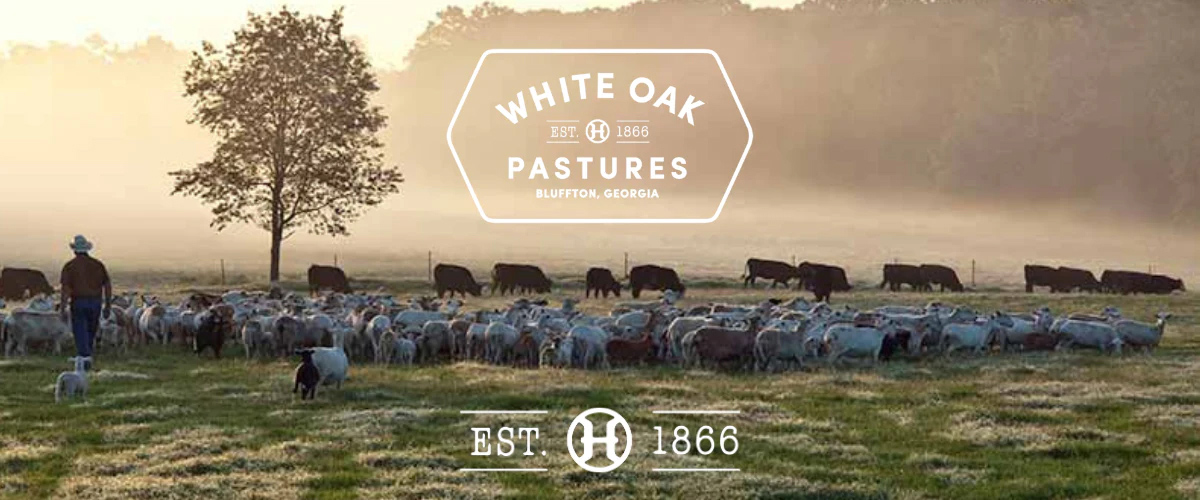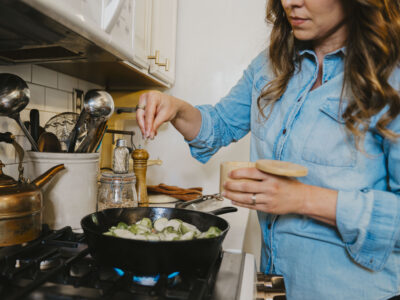With meat labeling laws being changed right before our eyes, it’s getting harder and harder to trust where our meat is coming from, and how it was raised and processed. Will Harris from White Oak Pastures shares the steps consumers can take to regain control over the food industry.
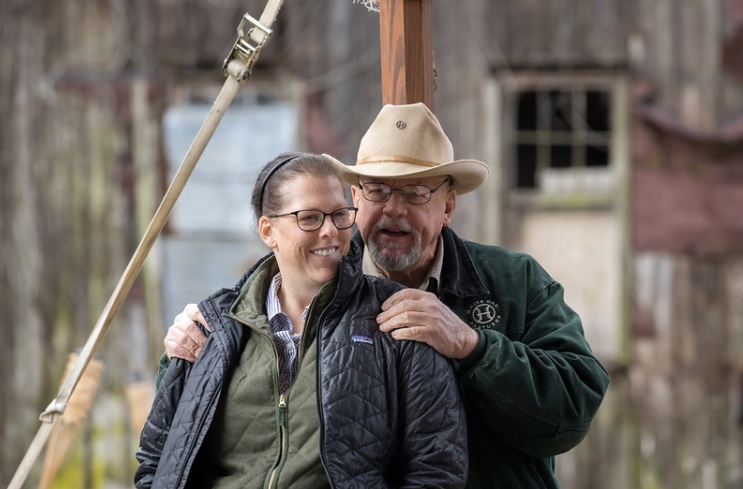
About White Oak Pastures
Will Harris is the fourth generation to operate White Oak Pastures, which was started by his great-grandfather in 1866. He ran the farm as a diverse family operation serving the local Bluffton market.
This was followed by his son, Will’s Grandfather. Post World War 2, Will’s dad took over and transitioned the farm into a linear component in the industrial cattle market. Will took over the farm after graduating from the University of Georgia in 1976 with a degree in animal science.
He ran the farm industrially for 20 years and for the past 25, has been converting it toward what his great-grandfather began back in 1866.
He’s joined on the farm by two of his three daughters (Jenni and Jodi) and their spouses.
They now raise and butcher ten species of livestock on their farm. A generalized list of what they offer are cattle, goats, sheep, hogs, and poultry.
It’s incredible to see their zero-waste policy at work. Every part of the cow is used and creates additional jobs for local people in their tiny town.
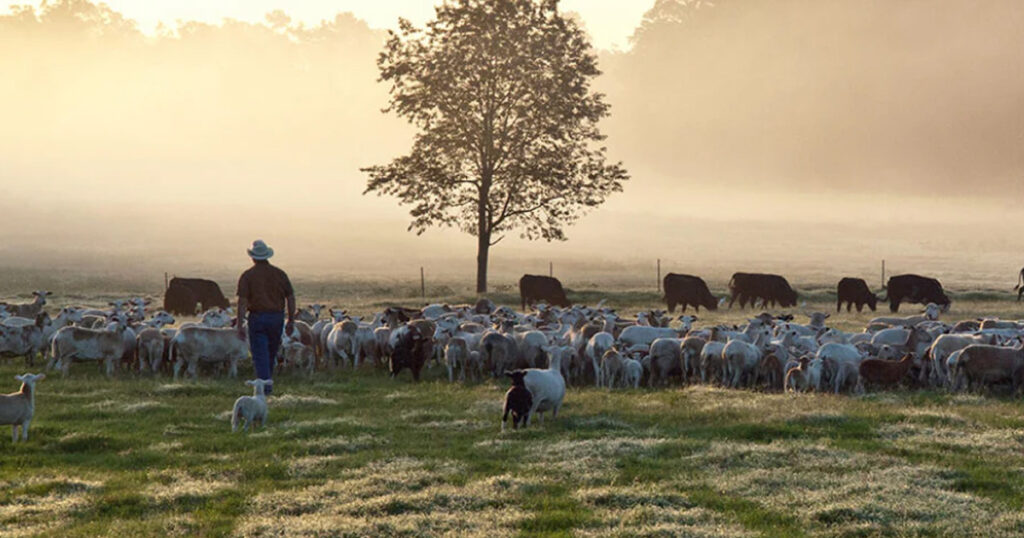
CAFOs vs. Grass-Fed Operations
Will shares that he doesn’t think it’s an accident that many people today don’t have an understanding of what goes on in a Concentrated Animal Feeding Operation (CAFO). These companies will show pictures of cattle grazing in the pastures with big red barns in the background.
However, an industrial beef feedlot is not a pretty picture. Nor is an industrial hog feedlot or an industrial boiler house. It involved confinement, limiting the animal’s ability to perform instinctive behaviors.
Cattle want to roam and graze, chickens want to scratch and peck, hogs want to root and wallow… it’s hardwired into them. This is why White Oak Pastures made the change to allow these animals to live their lives the way they were created.
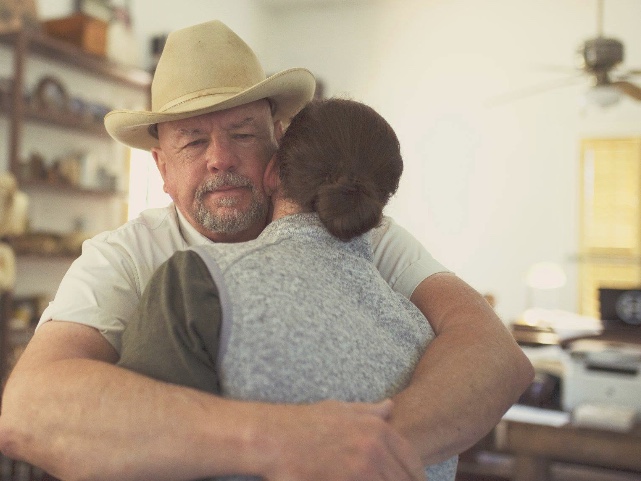
Unintended Consequences
Many of the technological advances that were made in the past 100 years have come with unintended consequences. It’s not that farmers knew moving toward mono-crops was a bad thing when they did it, it’s just they didn’t have the foresight to understand the true consequences.
In an effort to make food abundant and cheap, were very innocently implemented because they didn’t understand the unintended consequences. When chemical fertilizers were put out, we didn’t see it destroy the microbial population of the soil. It did, but we couldn’t see it.
After doing it for fifty years, we can see that the organic matter in the soil is .5% instead of being 5%. Those unintended consequences just weren’t recognizable in the short run.
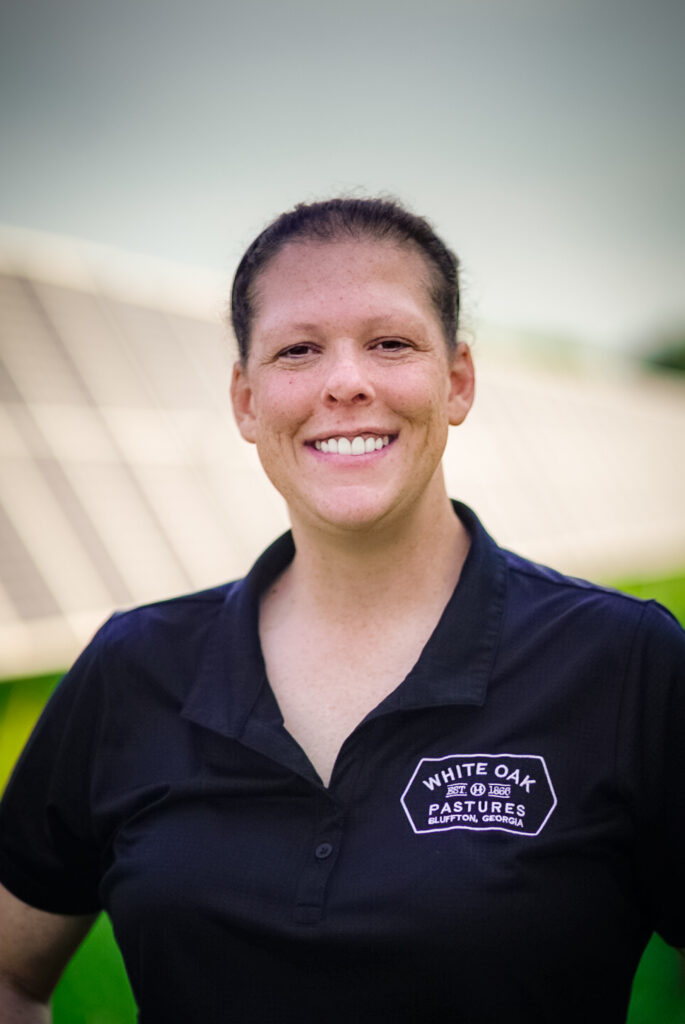
Changed Benchmarks
Jenni also mentioned that the benchmarks changed over the years. In the late 1800s, the benchmark was set at quality over quantity. Then, the benchmark slowly shifted to efficiency instead of quality.
Over the past twenty years, White Oak Pastures has changed the benchmark back to quality.
Keeping Industries in the USA
In 2006, a rule change allowed big multinational corporations to import grass-fed beef from about 20 countries and label it as a “Product of the USA,” even though the cow was born, raised and processed in other countries. (Source)
The reasoning behind it is that if value was added in this country, then it’s a product of the USA. I think most of us would agree that it’s a deceptive loophole put into place by the big meat corporations.
In fact, 1 in 5 pounds of meat sold in the USA is a product of one meat company.
One of the saddest parts about industries is that many of them are being moved overseas. I think we can all agree that taking our food industry overseas is not a smart decision. We’ve done this with the automotive and textile industries, and we can see the repercussions of that with lower-quality, cheap products that don’t last.
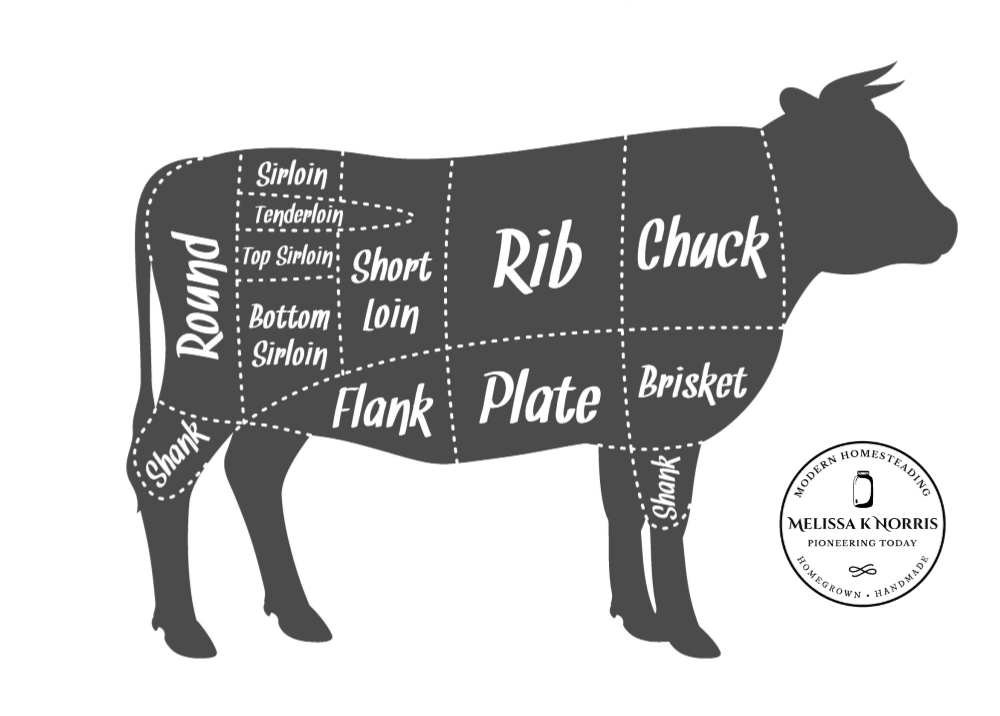
Decoding Meat Labels
Many labeling laws allow companies to get around certain terminologies. It’s very important to know how to decode these labels and truly know the product you’re purchasing from the grocery store.
If companies are creating laws to get around telling consumers that their meat is coming from overseas, should we really trust the other labels they put on them?
Ultimately, the only safe bet you can make is to get to know your farmer, buy local and from trusted sources, or raise your own.
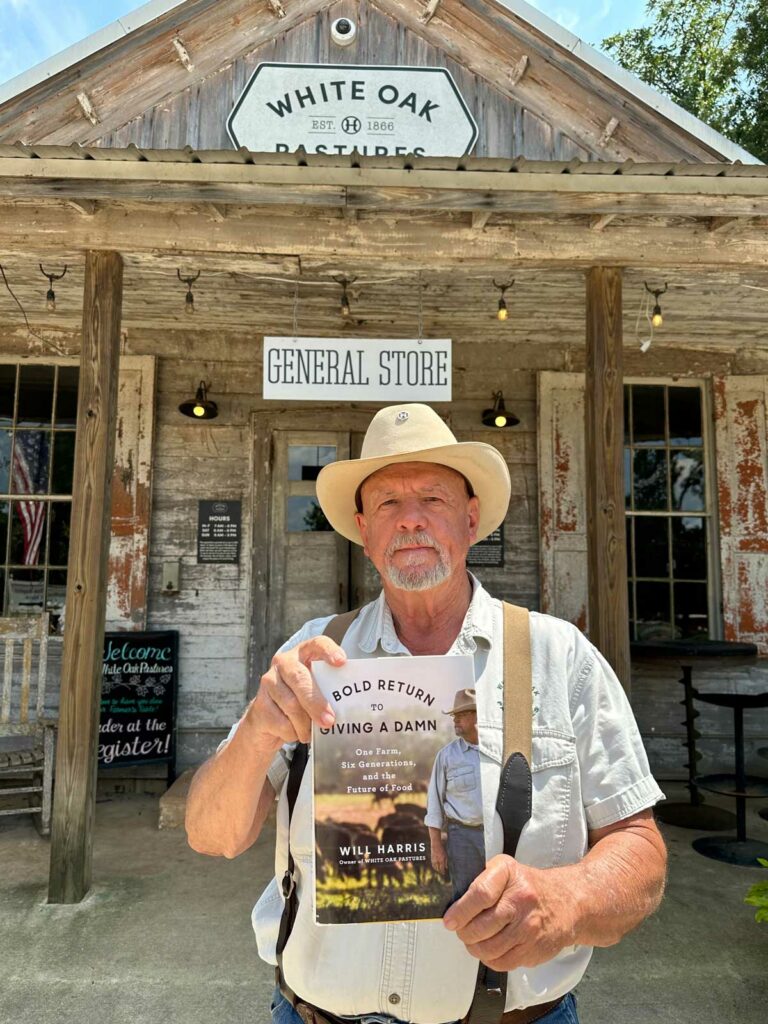
Where to Find White Oak Pastures
Check out all the things Will, Jenni, and the entire White Oak Pastures team have going on:
- Visit the White Oak Pastures website.
- Grab Will’s book, A Bold Return to Giving a Damn.
- Learn about Will Harris’ 501c3 called the Center for Agricultural Resilience.
- Rooted in Regeneration Summit in March in Bluffton, Georgia.
- White Oak Pastures on Facebook.
- White Oak Pastures on Instagram.

American Blossom Linens
Today’s podcast is sponsored by American Blossom Linens. I’ve had my sheets for over two years, and they just keep getting softer! I no longer make the bed with other sheets while my ABL sheets are washing because I just don’t like any of the other sheets I have! There’s no thinning in the extra worn areas, and they just keep getting better with each wash.
I also love their commitment to the support of USA made products. All of their cotton is grown and sourced in the United States. They used to make 100% organic cotton sheets; however, there was an organic cotton shortage in 2023 (with their West Texas growers), and instead of sourcing organic cotton from overseas, they changed the blend to 45% organic and 55% cotton to keep it all made in the USA.
They also happen to have a two-year satisfaction guarantee, so don’t wait any longer to try out a set of American Blossom Linens sheets (or towels, blankets, etc.). Use code “PioneeringToday20” to get 20% off your order.
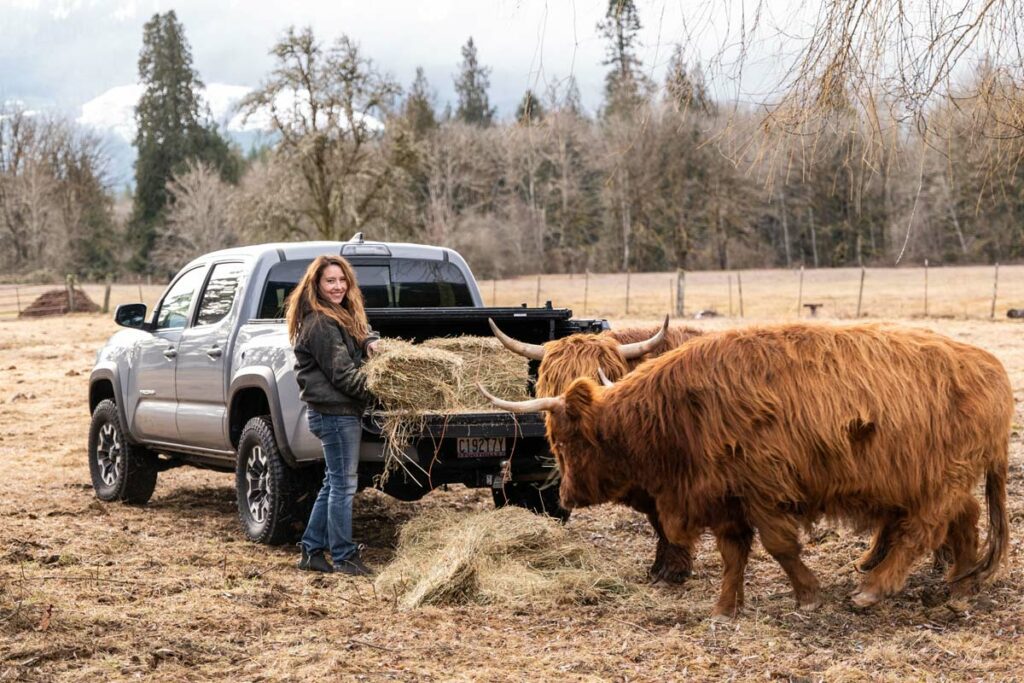
More Posts You May Enjoy
- Decoding mRNA in Meat w/ Joel Salatin
- What is A2 Milk & What are the Benefits?
- How to Make Beef Liver Supplements
- Tips for Eating Nose to Tail
- Biggest Homestead Mistakes We Made & What to Avoid
- What to do When Homesteading Gets Tough
- How to Buy a Homestead – What to Look For
- How to Get Everything Done in a Day Without Wasting Time or Getting Distracted
[fusebox_transcript]
